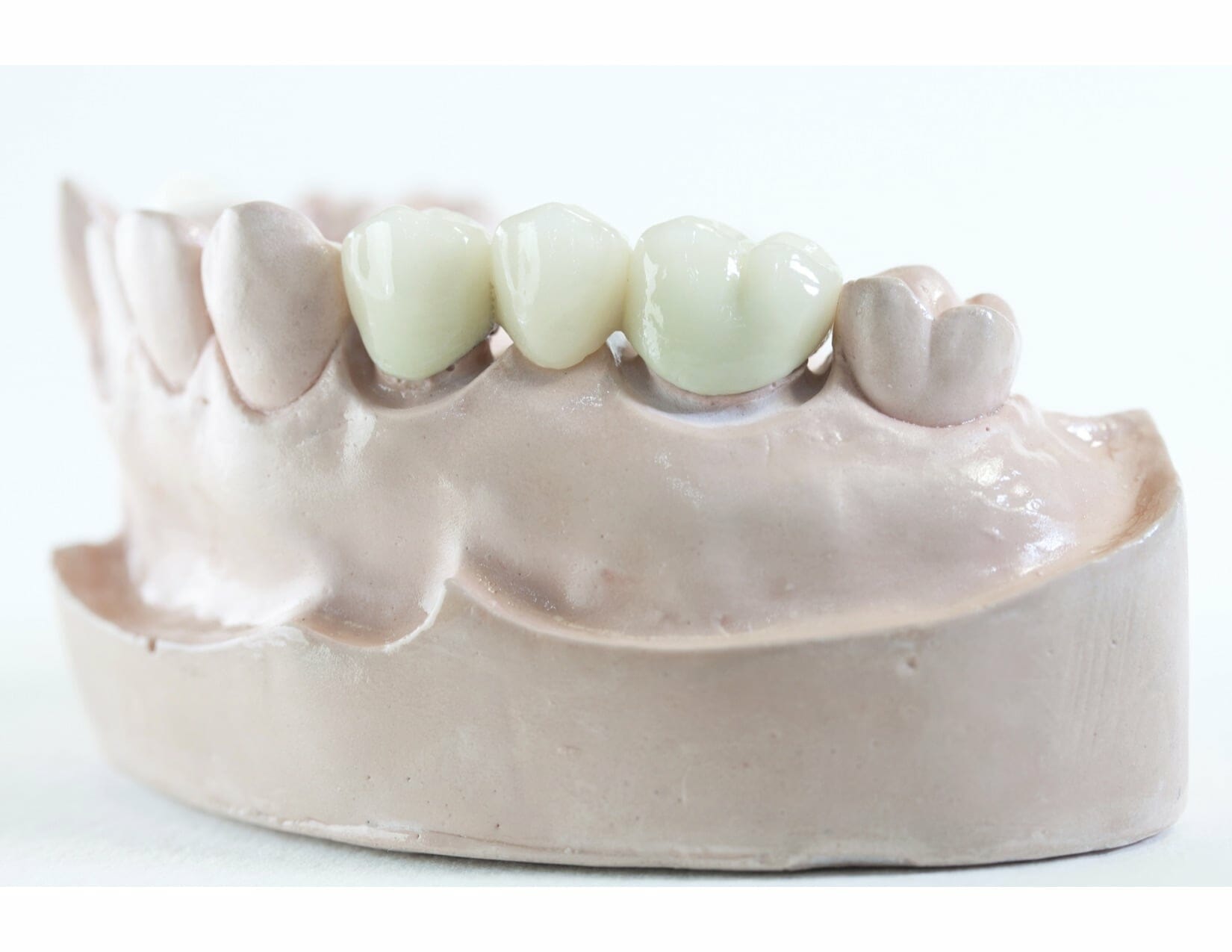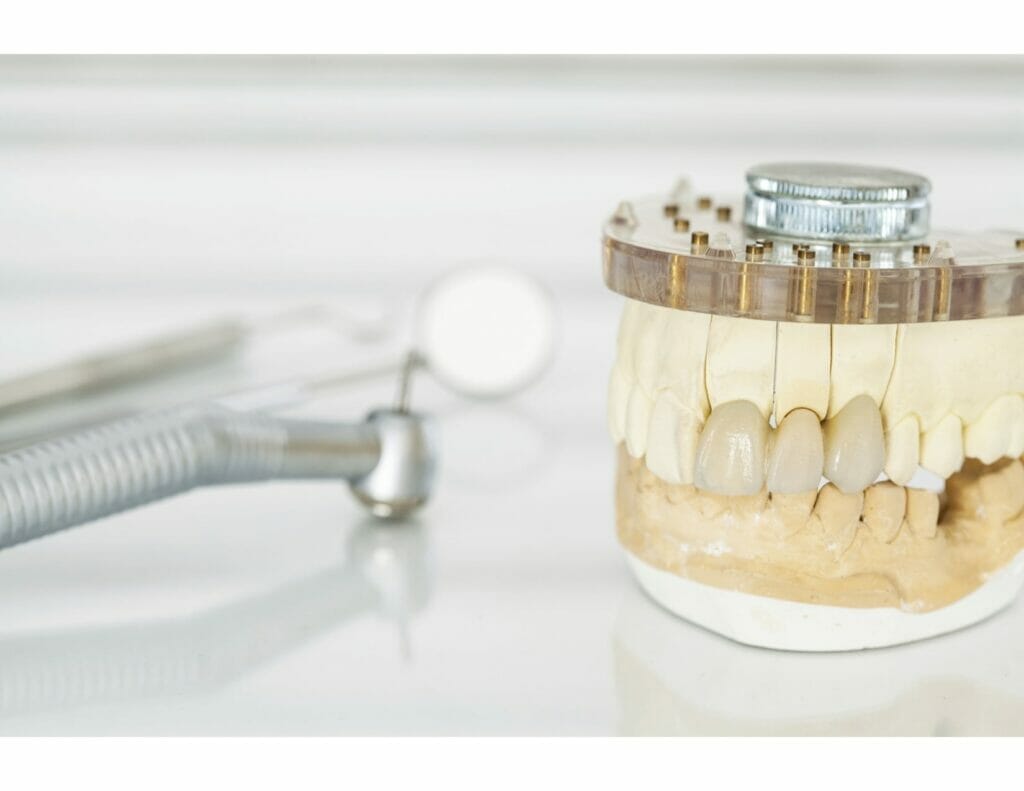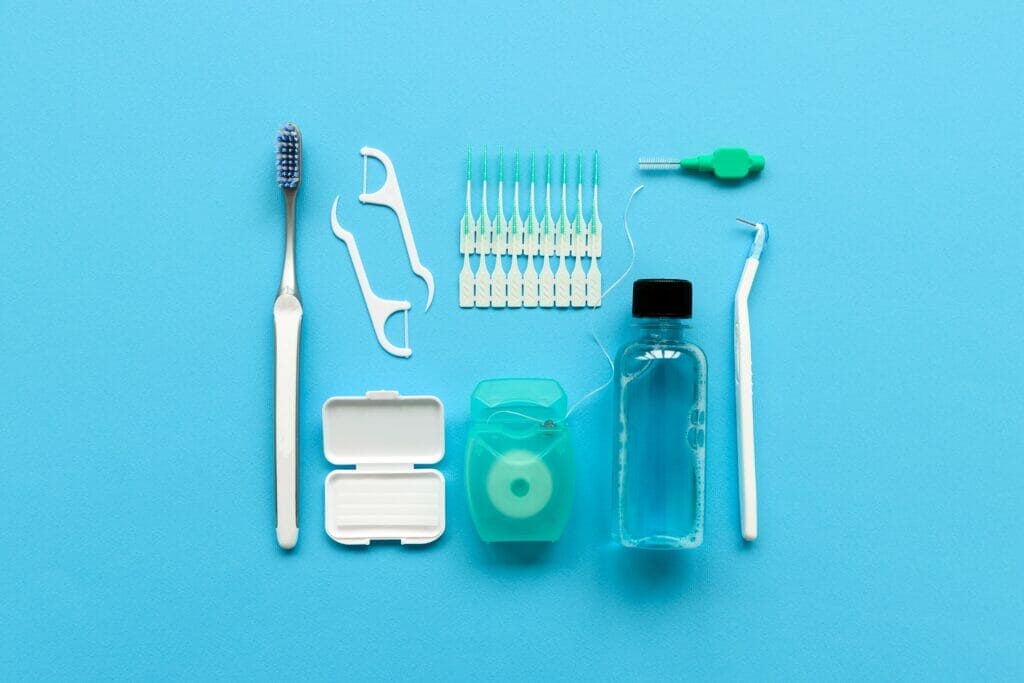
Dental Bridges are a durable, non-removable tooth replacement option. They have a fantastic track record in dentistry and were the premiere tooth replacement solution prior to development of dental implant technology. While dental implants continue to gain in popularity, dental bridges still offer a fantastic solution for replacement of lost teeth. In certain situations, I would argue that bridges are a superior solution compared to dental implants.
When you discuss treatment options with your Dentist, the quality of that discussion goes way, way up when you bring knowledge to the table! This is why I include the information that I do in my blog posts. You can take this stuff to your dental consult and use it as a platform to gather even more information. It will also make you an active participant in the discussion and not just an audience member.
So...here's a super-brief breakdown of what you need to know about dental bridges!
Okay, so this is a crash course and, luckily a dental bridge is an easy thing to describe. Here we go:
In the picture at the top of this post, you can see 3 shiny white porcelain teeth on a pink stone model of a patient's teeth. The patient is missing a single tooth and it is replaced by the middle shiny white tooth, or the "pontic" (bridge tooth). This tooth rests lightly on the gums at the site of tooth loss. Now, there is one shiny white tooth to the left and one shiny white tooth to the right of the middle bridge tooth. Those are retaining or "anchor" crowns or "caps". Each anchors the bridge to a natural tooth. Both retaining crowns are permanently cemented to their supporting teeth. This is a 3-unit or 3-tooth bridge. It is the most common type of dental bridge used in Dentistry.
There are 4-unit bridges, 5-unit bridges, and so on. The number of missing teeth replaced by a bridge can vary. The number of anchor crowns on either end of a bridge can vary too, depending on how much support is needed.
Now, let's talk costs.
Let's go through this with a quick formula. In approximate terms, a patient pays $1000 per tooth involved in a dental bridge. If you are replacing a single missing tooth, you need an anchor crown/cap on either side of the open space. You then need a bridge tooth which fills the open space. 1 tooth is replaced and 3 teeth are involved: you have a $3,000 dental bridge. Keep in mind that when replacing more than a single missing tooth, your Dentist may anchor crowns to more than 1 tooth on either side of the open space. So, ask your Dentist how many teeth are involved in the bridge and how much it will cost. Generally, it costs you $4,500-$6,000 per tooth replaced by a dental implant. Implants are considerably more expensive compared to dental bridges.
Okay, let's move next to a quick description of how a dental bridge is completed. The information will be useful for determining if you should pursue a dental bridge or a dental implant.

As we discussed above, a dental bridge is made up of one or more bridge teeth neighboured by anchoring crowns. The anchor crowns are cemented to natural teeth. These anchor teeth must be prepared to make space for the anchor crowns. If you simply cement the crowns over unprepared teeth, you will add to the height of those teeth and your bite will be uneven and uncomfortable. Here's how room for the bridge-anchoring crowns is made:
A patient is numbed in the area where the dental bridge will be placed. Anchoring teeth are shaved down by 1-2mm (or tenths of a cm) on their biting surface and around their perimeter. Your Family Dentist is essentially creating a miniature version of the retaining or anchor teeth. Then your Dentist takes an impression that the lab will use to make your custom Dental Bridge.
Now, here is the most important part: if your anchoring teeth are lightly restored with small fillings or pristine (unrestored - no fillings), then this shaving down process will remove or destroy a significant amount of healthy tooth enamel. In this scenario, a dental bridge will result in a significant loss of healthy tooth structure. A bridge becomes an excellent tooth replacement solution when the anchor teeth are heavily restored (think large fillings), cracked, or weakened by root canal treatment. Now, the anchor crowns will provide incidental reinforcement of teeth that desperately need it. What a bonus! In this very common scenario, I would argue that a dental bridge is a superior solution compared to a dental implant.
Most patients never hear this analysis. But you should know about it - the condition of potential anchoring teeth is a major factor in determining the relative value provided by a dental bridge over an implant.
Theoretically, you can replace any number of teeth with a dental bridge. However, you want to make sure you have enough anchor teeth to properly support the bridge. There is no definitive rule about this. However, there is a guideline called Ante's Law (Irwin H. Ante was a Canadian Dentist) that suggests: the tooth root area of supporting teeth should equal or exceed the root area of replaced (pontic) teeth. So, generally, if we replace a missing premolar and molar, we would like to anchor the bridge on at least one premolar and one molar.
Dentists in different countries/regions have different preferences with respect to dental treatments. In North America, Dentists typically limit a dental bridge to replacing no more than 3 teeth. These bridges would require at least 3 anchor teeth so they would be 6-unit bridges. 5- and 6-unit bridges are uncommon in North America. Generally, bridges that replace longer spans of teeth have a higher chance of future failure/complications.
If you are spending thousands on a dental bridge, you'll definitely want to know how long it should last. You will also want to know how best to maintain it while extending its longevity.

A Dental Bridge has an average lifespan of about 20 years. Having said that, I have seen many patients enjoy 30-plus years of service from a dental bridge. As you can imagine, the better the initial condition of retaining/anchor teeth, the better the longevity of the bridge will be. Additionally, it is important to know how best to clean around your bridge. Here we go....
The only difference between cleaning around your bridge and cleaning natural teeth is that, in a bridge, all teeth are fused or attached. This means you cannot floss between the teeth involved in a bridge. You will, therefore, need to incorporate a few special tools into your home care arsenal.
A waterpik or a plastic syringe can be very handy for spraying water or mouthrinse (think Scope or Listerine) under your bridge tooth/teeth. This irrigation allow for the removal or small and large food particles. You can also use proxabrushes (see the white and green miniature brushes middle-top of the above image) to get around and under your bridge. Lastly, you can use a blue plastic floss threader to weave floss under your bridge tooth. You can then move laterally, forward and back to clean the area. Otherwise, adequate cleaning of your bridge can involve regular toothbrushing and rinsing with mouthwash.
It really depends. The number one cause of dental bridge failure is tooth decay on a supporting tooth. Sometimes, your Dentist can easily access the cavity for repair and you can move forward with your existing bridge. In other cases, the decay may exist under the gums or in an area that is hard to reach for proper repair. This usually means having to replace your Dental Bridge. In many cases a Dental Bridge will last 20-plus years before needing to be replaced.
After tooth extraction, the bony socket heals and remodels. This always results in some degree of bone loss in the area. Over time, bone is continuously being lost from the site of tooth removal, although this is an extremely slow process.
Dental Implants help to maintain bone levels because when you chew on an implant, the force is delivered to the bone deep under the surface of the gums. Your jaw has little sensors to detect this force, and this continuous stimulation is a signal to your body that it needs to maintain the bone at the implant site. If you replace your tooth with a denture, on the other hand, it does nothing to maintain the bone. This is because the denture sits on your gums and has no inner connection to the layers of jawbone underneath.
Unfortunately, dental bridges are like dentures. Your bridge tooth (or teeth) will simply rest on the gums and cannot provide a signal to your body that it needs to maintain the jawbone where teeth were lost. So, dental bridges do not prevent post-extraction bone loss.
Unfortunately, whitening products cannot produce a colour change in artificial or prosthetic materials. You can't whiten the porcelain in your dental bridge. You cannot whiten dental fillings. This underscores the importance of carefully selecting the shade of bridges, dental crowns, and dental bonding or veneers before treatment.
My goal with this post is to provide as much critical information about dental bridges as possible in a very compact article. You should know about costs (about $1,000 per tooth involved in the prosthesis) and how that amount stacks up against the price of a dental implant. A dental bridge is a cemented, non-removable solution for tooth replacement (so is a dental implant). Both dental implants and bridges have a finite longevity. Sometimes a bridge can need to be replaced (and the same goes for a dental implant). Bridges require preparation and shaving down of anchor teeth while implants do not. Sometimes, the anchor teeth are structurally compromised and placing bridge-retaining crowns on them will provide reinforcement. This is a huge bonus compared to dental implant treatment. Cleaning a dental bridge requires a few special cleaning tools but can be done quickly and easily.
I hope you have found this article useful. If you would like to discuss tooth replacement solutions with me or gain a second opinion, please call (519) 576-8160 or request a consult with me here.
This article is intended to promote understanding of and knowledge about general oral health topics. It is not intended to be a substitute for professional advice, diagnosis or treatment. Always seek the advice of your Breslau Dentist or other qualified healthcare provider with any questions you may have regarding a dental condition or treatment.
Services
Routine Dentistry & Tooth Repair
Oral Surgery & Tooth Removal
Prosthetic Dentistry & Tooth Replacement
Protective/Preventive Services
Teeth Whitening
Schedule an Appointment Now
